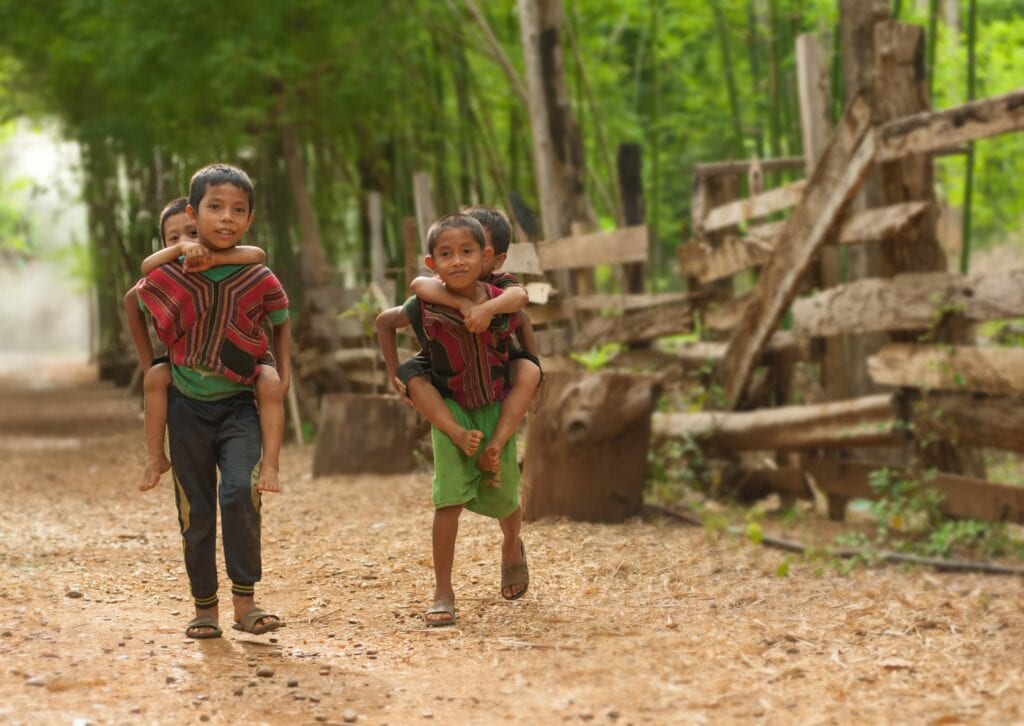Asia-Pacific will likely miss achieving all of the 17 Sustainable Development Goals by 2030 if we continue in our present deteriorating trajectory. To solve critical development issues in the region, therefore, we urgently need to effective public-private collaborations to unlock new and bigger pipelines of capital and scale solutions.
When I stepped into the shoes of CEO at AVPN in 2013, I quickly realised that policy engagement was an integral missing piece in Asia’s social investment ecosystem. Governments need to be seen as more than just legislators; they are collaborators who can connect state and national policy priorities with the private sector agenda.
6 years down the road, we have adopted diverse innovative pathways that bring the multi-sector ecosystem together to take action on local, national, and regional priorities. Not all of them were effective, however, as complex problems require the right platforms for solutions to ripen. Challenges including finding the right philanthropic or investment partner to collaborate with policymakers, and both parties may not have the right expertise and know-how to engage in partnership discourses.
In partnering with policymakers, therefore, we have to unpack a few core questions: How can we translate legislation into action and be partners in the implementation process? How can we bridge the capacity-building gap for policymakers and investors to work in partnership? How can we encourage policy leadership that champions cross-sector collaboration?
In exploring these questions, I would like to offer private social investors 3 opportunities to enter into meaningful conversations with policy partners:
Share your market-building knowledge to identify collaborative opportunities
In Asia, social investors have achieved milestones across a wide range of impact areas – from greater access to tertiary education and increased affordability for medical research and hospital resources, to easing the burden of elderly care and improving disaster relief systems in vulnerable regions. I am extremely motivated by their growing commitment to not only be stewards of their wealth, but also – in Ford Foundation President, Darren Walker’s words – ‘a movement from generosity to justice’.
It is all the more necessary to leverage the wealth of experience that these social investing practitioners have acquired for greater knowledge sharing. At AVPN, we organize more than 100 events every year so that social investors across the spectrum have the opportunity to participate in discourses that resonate with them. These convenings range from intimate market-specific forums to multi-year engagement programs. With a focus on the National Education Policy, we held our second India Policy Forum in Bangalore this November 2019 to great success. The one-day Forum set the stage to hold transparent, robust, and catalytic conversations with over 200 policymakers and social investors in the room. It, therefore, helped strengthen government efforts to build more cross-sector partnerships and achieve better educational outcomes in India.
At the same time, AVPN completed a year-long programme to build the concept of Inclusive Business (IB) in four Southeast Asian markets as IBs in Asia is projected to create 1.8 million income opportunities and bring services to over 70 million.
Inclusive businesses provides goods, services and livelihoods on a commercially viable basis to people at the base of the pyramid. 367 million people in ASEAN live on USD6 or less a day, constituting what is known as the base of the pyramid BoP.
In the Philippines, we provided a platform for corporations and governments to discuss how they might translate the country’s recently announced IB Roadmap to action on-the-ground.
Facilitating such conversations help bridge knowledge gaps between important stakeholders and uncover key considerations and recommendations that can support policy implementation.
Unlock new pools of capital by supporting government in taking risks
As there are no one-size-fits-all formula for working with the government, it is easy to allow limitations and past failures to stop us from achieving our ideals. Rising up as a leader to champion innovative and take risks is a critical factor in making multi-sector partnerships works. One such pioneer is investor UBS Optimus Foundation who took the big leap in participating in the first development impact bond (DIB) in India. Its risks paid off as the DIB’s huge success took the world by storm. With a goal of improving education outcomes from primary school students in rural Rajasthan, the three-year Educate Girls DIB achieved 116% of the enrolment target and 160% of the learning target. UBS Optimus Foundation recouped its initial funding of USD 270,000 with a 15% internal rate through government pay-for-success donor Children’s Investment Fund Foundation.
Building on this success, UBS Optimus Foundation is already supporting the next Quality Education India DIB, which has attained an outcome fund of USD 11 million. The performance-based financing model was a testament of UBS Optimus Foundation’s courage and innovation to take the initial risks; given the complexities in working as a collective, philanthropic involvement is not simply about filling gaps in the government. The funder profile has to be someone who is willing to challenge traditional power dynamics by encouraging those closest to the ground to lead and identify the most effective solution.
On a similar thread, the Ministry of National Development Planning in Indonesia launched its Sustainable Development Goal Financing Hub to mobilise more capital towards SDG-related projects in the country. The Hub provides an opportunity for the private sector to leverage unorthodox channels of non-government financing that are often overlooked by government such as crowdfunding, zakat (Islamic charity), and philanthropic funds, among other sources. I am very excited to be supporting this new initiative as it can prove catalytic to motivate commercial capital that will not ordinarily join this social investment.
Partner with networks to reach policymakers who are supporting your cause
Rigid bureaucratic structures, siloed streams of competing priorities, lack of transparent data, and more, have been touted as critical challenges in working with governments to advance proven solutions. However, even the most sophisticated governments should not bear the sole burden of tackling complex social challenges. The silver lining is that policymakers now are increasingly keen to engage more deeply with philanthropists and social investors.
At AVPN, we recognize our role as a neutral conduit for multiple voices to construct meaningful conversations and translate into collaborative action. AVPN’s Policy Leadership Lab, inaugurated in 2018, is a high-touch year-long fellowship program that was established with this in mind. Since its launch, 23 government officials and partners (‘Policy Fellows’) have participated in the program. Through the program, AVPN helps to identify practitioners, experts, and potential partners within the AVPN community who can offer mentorship, sector expertise, and other forms of capital (financial, technical, intellectual) to help the Policy Fellows achieve their goals.
We have also taken the lead in bringing together cross-sector inputs and feedback from key stakeholders on significant national and city-level legislation such as small business regulations and philanthropy guidelines. As a result of this work, Ms Ruchi Mathur from Pune City Connect was able to consult with veteran practitioners and experts in this field, such as Dr Reddy’s Foundation, Centre for Civil Society, DHFL, and Lend-A-Hand India, to exchange knowledge and resources for scaling her sustainable livelihood and skilling program in India.
Seeing the impact and enthusiasm on the ground, The Rockefeller Foundation has partnered with us to launch an India-specific edition of the Policy Leadership Lab this November 2019. With four priority areas – health, power, data for good, and sustainable finance –, the Lab will provide Policy Fellows with access to networks and resources to build their capacity and find opportunities for action.
Take your next steps
With these considerations in mind, start taking stock of what can be done with your organisation and take your first steps in the right direction. If you wish to continue learning and shaping your impact strategies, don’t miss out on our signature events where diverse thought leaders and practitioners will convene to drive knowledge sharing. Otherwise, reach out to us and be connected with the right people who can turn your ideas into action.


















